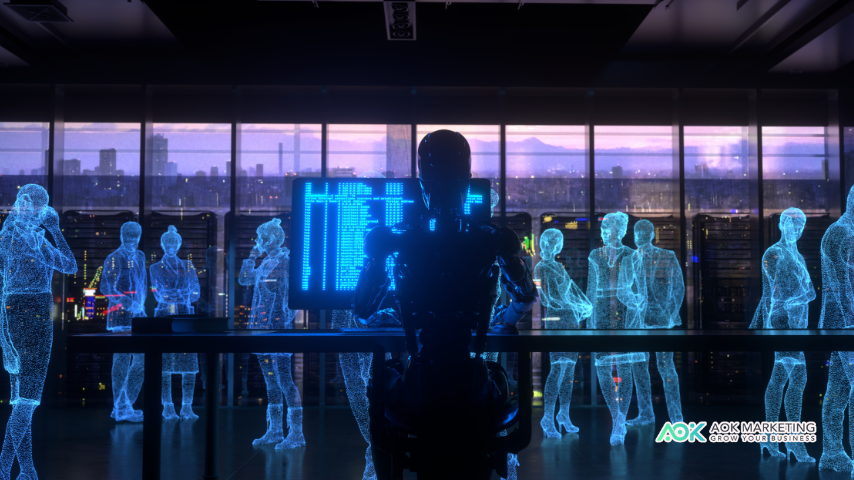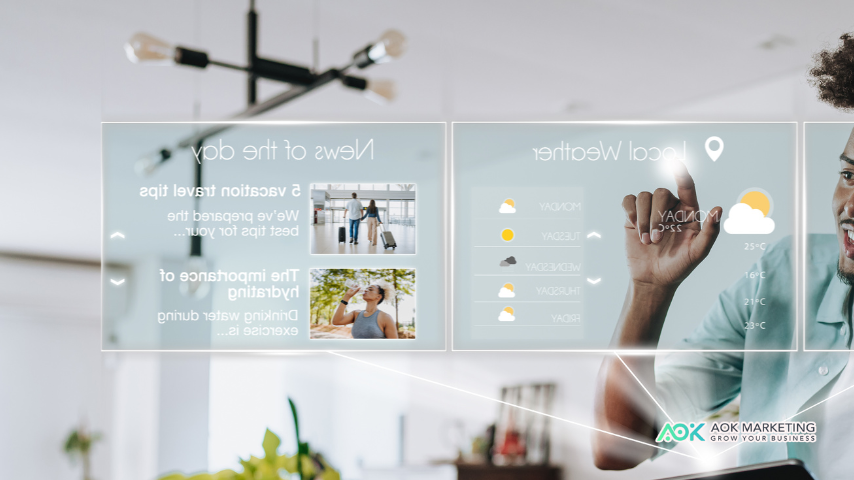Search engine optimization (SEO) has always evolved — but the pace of change heading into 2026 is unlike anything the industry has seen before. With artificial intelligence reshaping how people search, interact, and make decisions online, SEO will go beyond keywords and backlinks. The focus will shift toward building authority, trust, and adaptability in a landscape where algorithms increasingly think, not just rank.
Below are five predictions for SEO in 2026 that every brand, marketer, and content creator should prepare for.

1. Generative Engine Optimization (GEO) Will Take Center Stage
By 2026, traditional SEO as we know it — optimizing to appear on a search results page — will be just one part of the visibility equation. The rise of AI-powered answer engines, such as ChatGPT, Gemini, and other generative search tools, will make Generative Engine Optimization (GEO) the next frontier.
In simple terms, GEO focuses on making your content “trainable” for AI systems. Instead of optimizing only for Google’s algorithm, you’ll optimize for AI-generated summaries, citations, and answers.
What will this look like in practice?
-
Structuring content around questions and clear answers.
-
Incorporating data, facts, and unique insights that AI models can safely reference.
-
Strengthening semantic context through consistent use of entities, topics, and subtopics.
By 2026, brands that understand how to “teach” AI models to recognize and trust their content will gain the lion’s share of attention — even if users never visit their site directly.
2. Zero-Click Search Will Become the Norm
We’ve already entered an era where users get the answers they need without clicking through to a website. By 2026, zero-click searches will dominate many query types, especially informational and navigational ones.
With AI overviews, featured snippets, and voice responses taking over, searchers won’t always need to leave the platform. That means the goal of SEO will evolve — from driving clicks to building recognition.
To adapt, brands will need to:
-
Prioritize brand visibility over traffic numbers.
-
Optimize content to appear in summaries, featured snippets, and conversational results.
-
Build trust signals, such as author bios, schema markup, and consistent branding, so AI tools confidently reference your information.
In short, the best-performing SEO strategies will focus on owning the conversation, not just the click.
3. Brand Authority and Original Insight Will Outrank Generic AI Content
As AI-generated content floods the web, Google and other engines will continue refining ways to distinguish real expertise from repetition. In 2026, the concept of E-E-A-T (Experience, Expertise, Authoritativeness, and Trustworthiness) will be stronger than ever.
Search algorithms will favor content that reflects:
-
First-hand experience (e.g., case studies, reviews, data-driven insights)
-
Verified authorship and transparent sourcing
-
Distinct brand voice and expertise
Generic or AI-spun articles will have diminishing returns, while authentic content backed by real authority will thrive.
Marketers should focus on developing what AI cannot replicate — unique perspectives, thought leadership, and real-world stories. Instead of publishing for volume, brands will publish for proof — proving expertise, reliability, and originality.
4. Multimodal and Voice Search Will Reshape Content Formats
Search is no longer limited to typing text. By 2026, users will be searching with images, videos, and voice commands more frequently than ever. With multimodal AI models becoming mainstream, the lines between visual, auditory, and textual content will blur.
Here’s what this means for SEO:
-
Visual-first optimization will be critical — every image, product photo, and video should include metadata and alt text aligned with your keywords.
-
Voice search queries will demand natural, conversational phrasing.
-
Short-form video and interactive content will increasingly surface in search results.
Think of SEO in 2026 as optimizing for how people perceive information, not just how they type it. Brands that diversify content — combining text, visuals, and sound — will appeal to how modern users consume and search simultaneously across devices and platforms.
5. Real-Time Search and Continuous Indexing Will Redefine Freshness
In the past, SEO updates were gradual — it took weeks or months for Google to reindex new content. By 2026, that lag time will shrink dramatically. With advancements in real-time indexing and AI-driven crawling, freshness will become an even stronger ranking factor.
News updates, trend analysis, and even social signals may influence rankings within hours instead of days. Brands that publish consistently, update older content regularly, and respond quickly to new developments will see better visibility.
To stay competitive:
-
Maintain a living content strategy, revisiting and refreshing pages quarterly.
-
Use structured data to help search engines detect new updates faster.
-
Integrate real-time insights from social media or industry data to keep your content relevant.
In essence, SEO will reward the most dynamic and responsive websites — not just the ones with the most keywords.
The Future of SEO Is About Trust, Not Tricks
The SEO landscape in 2026 will be defined by credibility, adaptability, and authenticity. While the tools and technologies will keep evolving, the underlying goal remains the same: helping users find trustworthy, relevant information.
Marketers who understand this shift will invest less in chasing algorithms and more in building authority ecosystems — a web of content, signals, and reputation that search engines and AI models can’t ignore.
SEO in 2026 will belong to brands that are:
-
Transparent about who they are and what they stand for
-
Consistent in providing value across every channel
-
Ready to adapt to new ways people search and discover
Conclusion
By 2026, SEO will no longer be just about ranking pages. It will be about being recognized as a trusted authority in a rapidly changing, AI-driven environment.
The future belongs to marketers who can merge technology with humanity — who create not just optimized content, but meaningful, credible, and multi-format experiences that both users and machines trust.
If there’s one prediction to bet on, it’s this: the brands that build authority today will own visibility tomorrow.
About The Author
Jana Legaspi
Jana Legaspi is a seasoned content creator, blogger, and PR specialist with over 5 years of experience in the multimedia field. With a sharp eye for detail and a passion for storytelling, Jana has successfully crafted engaging content across various platforms, from social media to websites and beyond. Her diverse skill set allows her to seamlessly navigate the ever-changing digital landscape, consistently delivering quality content that resonates with audiences.






